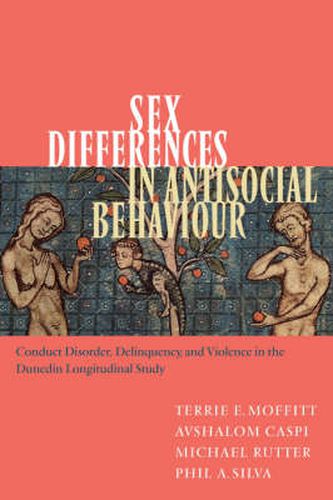Readings Newsletter
Become a Readings Member to make your shopping experience even easier.
Sign in or sign up for free!
You’re not far away from qualifying for FREE standard shipping within Australia
You’ve qualified for FREE standard shipping within Australia
The cart is loading…






Why are females rarely antisocial and males antisocial so often? This key question is addressed in a fresh approach to sex differences in the causes, course and consequences of antisocial behaviour. The book presents all-new findings from a landmark investigation of 1,000 males and females studied from ages 3 to 21 years. It shows that young people develop antisocial behaviour for two main reasons. One form of antisocial behaviour is a neurodevelopmental disorder afflicting males, with low prevalence in the population, early childhood onset and subsequent persistence. The other form of antisocial behaviour, afflicting females as well as males, is common and emerges in the context of social relationships. The book offers insights about diagnosis and measurement, the importance of puberty, the problem of partner violence and the nature of intergenerational transmission. It puts forward a new agenda for research about both neurodevelopmental and social influences on antisocial behaviour.
$9.00 standard shipping within Australia
FREE standard shipping within Australia for orders over $100.00
Express & International shipping calculated at checkout
Why are females rarely antisocial and males antisocial so often? This key question is addressed in a fresh approach to sex differences in the causes, course and consequences of antisocial behaviour. The book presents all-new findings from a landmark investigation of 1,000 males and females studied from ages 3 to 21 years. It shows that young people develop antisocial behaviour for two main reasons. One form of antisocial behaviour is a neurodevelopmental disorder afflicting males, with low prevalence in the population, early childhood onset and subsequent persistence. The other form of antisocial behaviour, afflicting females as well as males, is common and emerges in the context of social relationships. The book offers insights about diagnosis and measurement, the importance of puberty, the problem of partner violence and the nature of intergenerational transmission. It puts forward a new agenda for research about both neurodevelopmental and social influences on antisocial behaviour.